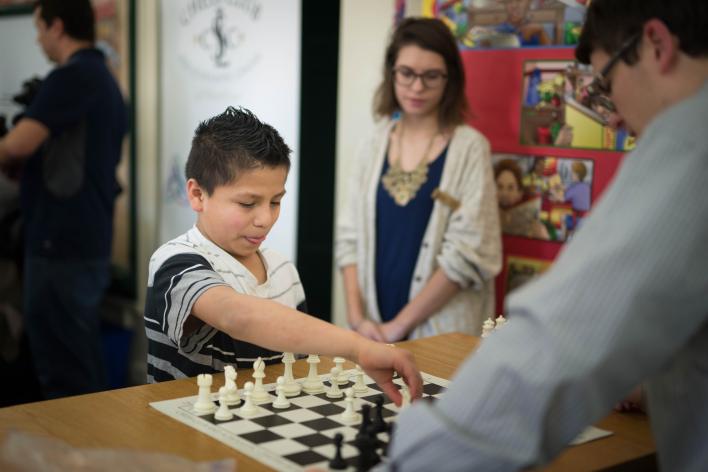
by Emily Sholtis & Matthew Pepper, Basis Policy Research
Some nations have always been chess powerhouses, like Russia and the United States. While these two nations are undeniably titans of the game, this blog post focuses on a far smaller nation whose commitment to the game is unrivaled. In this second installation of our “Chess Around the World” series, we would like to take you to Armenia, the first nation to make chess universally compulsory in schools.
A previous blog post highlighted that Armenia has produced 37 Grandmasters since 1950, the second most per capita in the world (behind Iceland). There is a strong tradition of chess excellence in this nation of approximately 3 million, thanks to one-time World Champion Tigran Petrosian and current Grandmaster Levon Aronian. In 2011, Armenia took a sweeping step to integrate chess into their national curriculum as a mandatory subject for all children in grades two, three and four.
In the first year of implementation, 2011, 40,000 students across 1,500 schools received formal lessons from trained instructors 2 days of the week. Armenia developed its curriculum, which they hope will “become among the best in the world”, by working with grandmasters, members of the national chess federations, and education ministers.
So why is Armenia committing valuable instructional time to chess?
This blog has covered the potential benefits of chess within schools numerous times. Some studies find that skills from the game can help boost student test scores especially in mathematics. Armenian officials, however, have stated that this program is about “building character, not breeding chess champions”. Rather than focusing purely on academic outcomes, their chess curriculum is viewed as an opportunity to refine soft skills like communication and socialization and strengthen cognitive abilities such as problem solving, logic, and mental flexibility. Furthermore, chess is viewed as a highly inclusive game in Armenia enabling students of all abilities, ages, and experience to benefit from play.
Replicating Armenia’s universal integration of chess into schools in the United States would be challenging, due to both the decentralization of American schools and the difference in scale (Armenia has 40,000 students to the United States’ 50 million). While it is unlikely that the United States would replicate the universality of chess/school integration, there is a wealth of local and state-level organizations championing chess instruction within schools. Our own Chess Club and Scholastic Center of St. Louis (CCSCSL) is an excellent example. This school year, the CCSCSL is conducting 182 classes across 76 schools every week – and students in these classes are share in the universal game with their peers in Armenia. We will continue to follow Armenia and its commitment to exposing its students to the positive benefits associated with playing chess.


